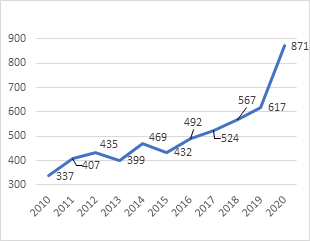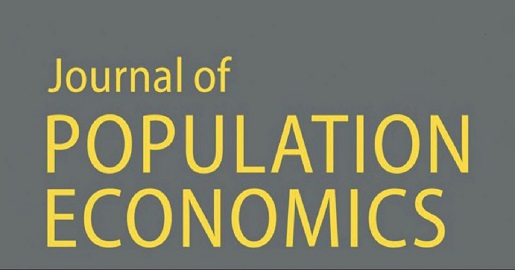A new paper published ONLINE FIRST OPEN ACCESS in the Journal of Population Economics presents evidence to support the hypothesis that personal growth and life appreciation emerge after traumatic events, thereby leading to optimistic perceptions of longevity.
by Bruno Arpino, Pierluigi Conzo & Francesco Salustri
Published ONLINE FIRST 2021: Journal of Population Economics
OPEN ACCESS: PDF

Author Abstract: Life-course studies have shown that early-life conditions predict health and socio-economic status in adult life. This study analyzes whether experiencing a traumatic event in childhood, i.e., the Second World War (WW2), affects subjective survival probabilities (SSPs). We rely on a representative sample of European adults who were differentially exposed to WW2 during childhood as a result of their date and place of birth. Results show that exposure to WW2 increases SSPs, with socio-economic and health characteristics not playing a mediating role. War exposure also counterbalances the adverse effects of health impairments on SSPs, but it does not affect health outcomes per se. This fact, jointly with low mortality rates of the cohort under investigation, suggests that selective mortality and post-traumatic stress are not the main channels. Instead, the results support the hypothesis that personal growth and life appreciation emerge after traumatic events, thereby leading to optimistic perceptions of longevity.

EiC Report 2020
SSCI IMPACT FACTOR 2.813 (2020) from 1.840 (2019) & 1.253 (2018)
SSCI 5-Year Impact Factor 3.318 (2020) from 2.353 (2019) & 2.072 (2018)
Journal of Population Economics
Access to the recently published Volume 34, Issue 3, July 2021.
LEAD ARTICLE OF ISSUE 3, 2021:
The safest time to fly: pandemic response in the era of Fox News
by Maxim Ananyev, Michael Poyker and Yuan Tian
OPEN ACCESS: Free Readlink – Download PDF
The Global Labor Organization (GLO) is an independent, non-partisan and non-governmental organization that functions as an international network and virtual platform to stimulate global research, debate and collaboration.
Ends;

